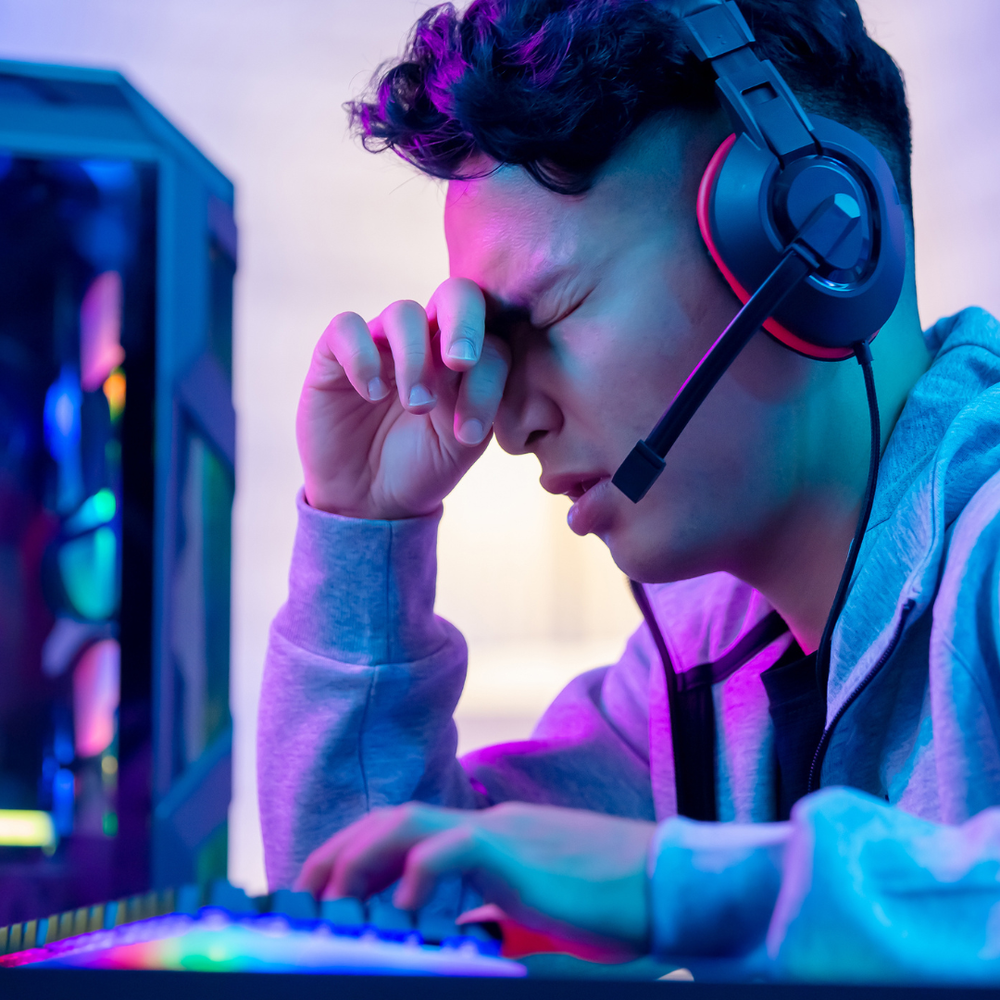Gaming is a popular pastime for millions of people worldwide, jumping on for “games with the boys” is fun and a great way to destress after a long day. It can also have a significant impact on sleep.
Whether you're a casual player or a hardcore gamer, it's important to understand how gaming affects your sleep and how to maintain a healthy sleep schedule.

This article aims to explore the relationship between gaming and sleep and provide practical tips for improving sleep quality. This article will answer questions like: How many hours does a gamer sleep? Does gaming affect your sleep? What time should a gamer sleep? How do I fix my gamer sleep schedule?
Adequate sleep is essential for good health, including improved cognitive function and physical performance. For gamers, getting enough sleep can also have a positive impact on gaming performance. Lack of sleep, on the other hand, leads to decreased reaction times, increased frustration, and an overall drop in the enjoyment of the gaming experience.
Impact of Gaming on Sleep
 .
.
On the other hand, excessive gaming can lead to sleep deprivation, decreased sleep quality, and a host of related health problems. Players who spend long hours gaming into the night may find it difficult to fall asleep, leading to chronic sleep deprivation and a disrupted sleep schedule.
What Time Should a Gamer Sleep?

Tips for Improving Sleep onset & Quality

There are several practical steps that gamers that can help to improve sleep quality and onset :
-
Set a consistent bedtime and waketime -
-
Limit caffeine and energy drink consumption
-
Avoid gaming for at least one hour before bedtime (the more separation the better)
-
Create a relaxing bedtime routine, such as reading or meditating
-
Take a cold shower before bed
-
Avoid the bedroom for purposes other than sleep ( and that one other thing ;) )
-
view evening and morning light outside for about ten minutes
In addition to these tips, many gamers are finding it helpful to incorporate a sleep aid into their routine. Sleep aids for gamers, such as CutScene’s gamer-specific sleep aid, are designed to promote relaxation and support a healthy sleep cycle.
It's important to remember that while sleep aids can be helpful tools, they should not be relied upon as a long-term solution. Consistently implementing good sleep hygiene practices and making lifestyle changes, such as reducing caffeine and energy drink consumption, will have a more significant and lasting impact on sleep quality.
Conclusion
In conclusion, gaming can have a significant impact on sleep, especially for those who spend many hours playing. Understanding the effects of gaming on sleep, setting a consistent sleep schedule, and incorporating healthy sleep habits, such as limiting caffeine and energy drinks and creating a relaxing bedtime routine, can help improve sleep quality.
Additionally, sleep aids for gamers, like CutScene’s gamer sleep aid, can be very beneficial for those who have trouble falling asleep or staying asleep. By prioritizing sleep, gamers can improve their overall health, mental well-being, and gaming performance.
Check out why gamers can’t sleep to get a deeper understanding of what’s going on behind the scenes: Here




Leave a comment
All comments are moderated before being published.
This site is protected by hCaptcha and the hCaptcha Privacy Policy and Terms of Service apply.